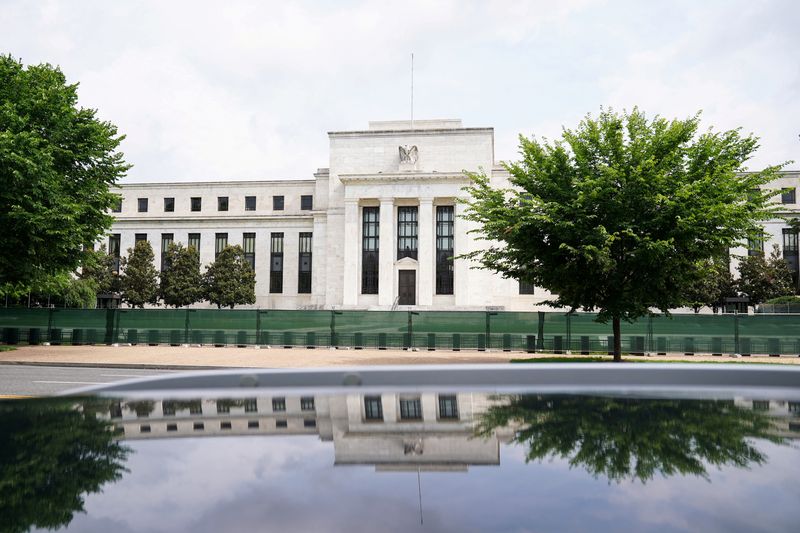(Reuters) - Federal Reserve policymakers have pushed back on the idea that U.S. financial market stress is anywhere near the point of requiring their intervention as is happening in Britain, but the central bank does have a range of options should domestic market conditions worsen materially.
Here is a look at how the Fed might forestall market dysfunction should it threaten to emerge, listed roughly from most to least likely to be deployed.
TALKING THE TALK
In recent days Fed policymakers have acknowledged some liquidity strains in U.S. financial markets - the Treasury market in particular - and the risk that raising interest rates to combat inflation could exacerbate vulnerabilities both domestically and abroad. So far, the situation is not one of sellers of Treasuries hardly able to find buyers altogether, which was the sort of liquidity crunch that prompted Fed intervention in the pandemic and the 2007-2009 financial crisis. Policymakers have said they are monitoring the situation.
A next step may simply be more pointed talk, Yale Program on Financial Stability senior research associate Steven Kelly explains, "going out and telling the markets that, while the markets may sell off as the Fed tightens, the Fed is willing to use all its tools to accommodate an orderly tightening."
Promises of action can, in and of themselves, calm markets. Still, Fed policymakers would likely be cautious about taking their jawboning up a notch for fear of delivering perhaps too much calm, and undoing the very tightening they need to bring inflation under control.
STANDING AT THE READY
The Fed has a few tools up and running that can deliver liquidity in a pinch, the very existence of which is likely already acting as a "stabilizing force" for otherwise unsettled markets, Fed Governor Christopher Waller said last week.
Currency swap lines, established during the financial crisis and since made permanent, allow six large central banks to tap the Fed for dollars whenever needed. Used heavily early in the pandemic, they've seen little use of late.
For smaller central banks without permanent swap lines, the Fed offers a repurchase agreement, or repo, facility as a ready way to borrow cash against their holdings of Treasuries. It hasn't seen significant use in a year and a half.
It also has a standing repo facility, established last year, that acts as a kind of automatic safety valve against upward pressure in money markets for U.S. banks. Like the other two, usage has been minimal.
A surge in use of any of these facilities would signal rising trouble and set the stage for more active Fed intervention ahead.
INTEREST ON BANKS' RESERVES, REVERSE REPOS
The Fed is committed to raising its benchmark policy rate to beat inflation, but could tinker with other rates it controls to inject more liquidity into the financial system. As PSC Macro's Roberto Perli explains, the Fed could try to rebuild bank reserves - an important pool of market liquidity - by increasing the rate it pays on those reserves, or cutting the rate it offers to money market funds to park their liquidity at the Fed, or both. It could also limit money market funds' use of reverse repos. "Each of these measures would have drawbacks, but eventually the Fed may have to use at least some of them," Perli wrote.
BALANCE SHEET TWEAKS
As part of its efforts to reverse years of stimulus and tighten policy, the Fed is trimming its nearly $9 trillion balance sheet. That process by intent drains liquidity from the financial system. If taken too far, as happened the last time the Fed pursued so-called quantitative tightening in 2019, it can cause market ructions. Slowing that effort could ease strains, but it could also send a confusing signal to markets that may conclude the Fed is backing away from the inflation fight.
Another option is to engage in targeted and temporary purchases of securities, similar to what the Bank of England has done recently.

PULLING OUT THE STOPS
Market speculation to the contrary, slowing or pausing interest rate hikes in response to financial stability concerns is not under consideration or at all likely, Waller said last week. The Fed would likely only do so once it had exhausted all its other tools, Perli wrote; anything further, like the relaunch of the crisis lending facilities created during the pandemic, "seems pretty much off the table."